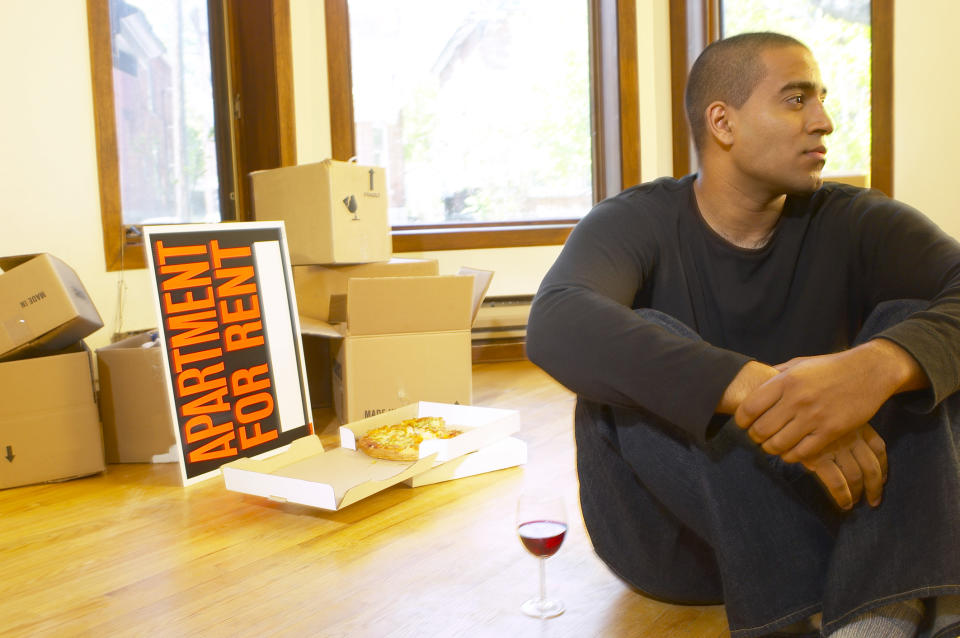Are you better off renting or buying your home?

It’s a question financial advisors get all the time: is it better to rent or buy?
About a third of Canadians are renters, according to a recent international study that analyzed the percentage of renters in several developed countries around the world. It found that 33.5 per cent of Canadians rent a place to live.
Meanwhile, housing sales are at a three-year low across the country, according to recent data from the Canadian Real Estate Association. It reported that Canadian home sales fell 14.5 per cent between December and January.
Does the market slump make it a good time for some of those renters to sign a mortgage?
It depends who you ask.
Ben Felix, associate portfolio Manager at PWL Capital in Ottawa, cautions Canadians not to give the current drop in housing sales too much weight.
“Sales may be at a three-year low, but low is relative,” Felix says. “Low sales compared to recent history may be high sales compared to next year. We won’t know that until the future happens.
“There is no way to be certain about a market-timing decision,” he adds. “You will only know if it was a good or bad time to buy in hindsight. I believe that it is far more sensible to make financial decisions based on the long-term expected returns of an asset.”
In markets like Vancouver and Toronto, where home prices are through the roof, there’s simply no choice for many: renting it is. But that may not be a bad thing; while there are many non-financial factors that affect the housing decision, if the question is whether it’s better to rent purely from a financial perspective, Felix says it can be answered with analysis based on some reasonable assumptions.
Formula for whether you should rent or buy
In Vancouver, the average rent in 2017 was $1,297 for all rental types and $1,801 for three or more bedroom rentals, according to the Canada Mortgage and Housing Corporation. The average home price for all home types was $1,050,300.
A 20-per cent down payment on a home would be $210,060. Other costs to buy would include legal fees and B.C.’s property transfer tax ($19,006). Assuming an interest rate of three percent and a 25-year amortization, the monthly payment, with home insurance and maintenance costs thrown in, would be roughly $3,976.
The renter’s monthly housing costs for a three-or-more bedroom unit, meanwhile, with renter’s insurance of $100 per month added in, would be about $1,801.
Now let’s say the renter took $231,000 and invested it instead of using it for a down payment.
“Based on these numbers, a disciplined renter would be expected to build substantially more wealth over 25 years than an owner,” Felix says. “This assumes that the renter invests the full cost savings from renting in an aggressive portfolio of index funds, keeps the fees on their investments low, and stays invested through all market conditions.”
More than just finances
No matter what the market is doing, however, it’s the non-financial factors that play a larger role in people’s housing decisions. For many, home ownership offers a sense of security; for others, renting allows freedom and flexibility, plus the benefits of not having to pay for maintenance and repairs.
Vancity wealth advisor Sophie Salcito in Vancouver points out that one advantage of owning is that any capital gain is tax-free; another is being able to rent out a suite or room for income that would help pay the mortgage.
“I talk a lot in terms of financial short-term pain for long-term gain,” Salcito says. “It doesn’t really matter what the market condition is if home ownership is the goal. If that’s what drives them, I would say that’s not a bad goal. People are maybe going to have to have some more ingenuity around it.”
A handful of friends, coworkers, or family members may band together to buy a condo or a home, for instance (Vancity offers a “mixer mortgage” for small groups who want to share the cost of a home purchase). The caveat here is to make sure there’s legal framework in place to help you get out if you want or need to.
Another option, aside from buying in a suburb, where home prices are lower and commuting, is to rent in the city, where home prices are higher, and buy a place farther away and rent it out. “You’re keeping your foot in the property market,” Salcito says.
Still, while tighter mortgage rules and lending-rate hikes are playing a role in the current dip in home sales, oftentimes the market conditions are irrelevant.
“For a lot of people, it just comes down to the emotional factor,” Salcito says. “Some people have never paid a day of rent because they needed to own for their own security; other people just don’t want to be tied down.”
Download the Yahoo Finance app, available for Apple and Android.

 Yahoo Finance
Yahoo Finance 
